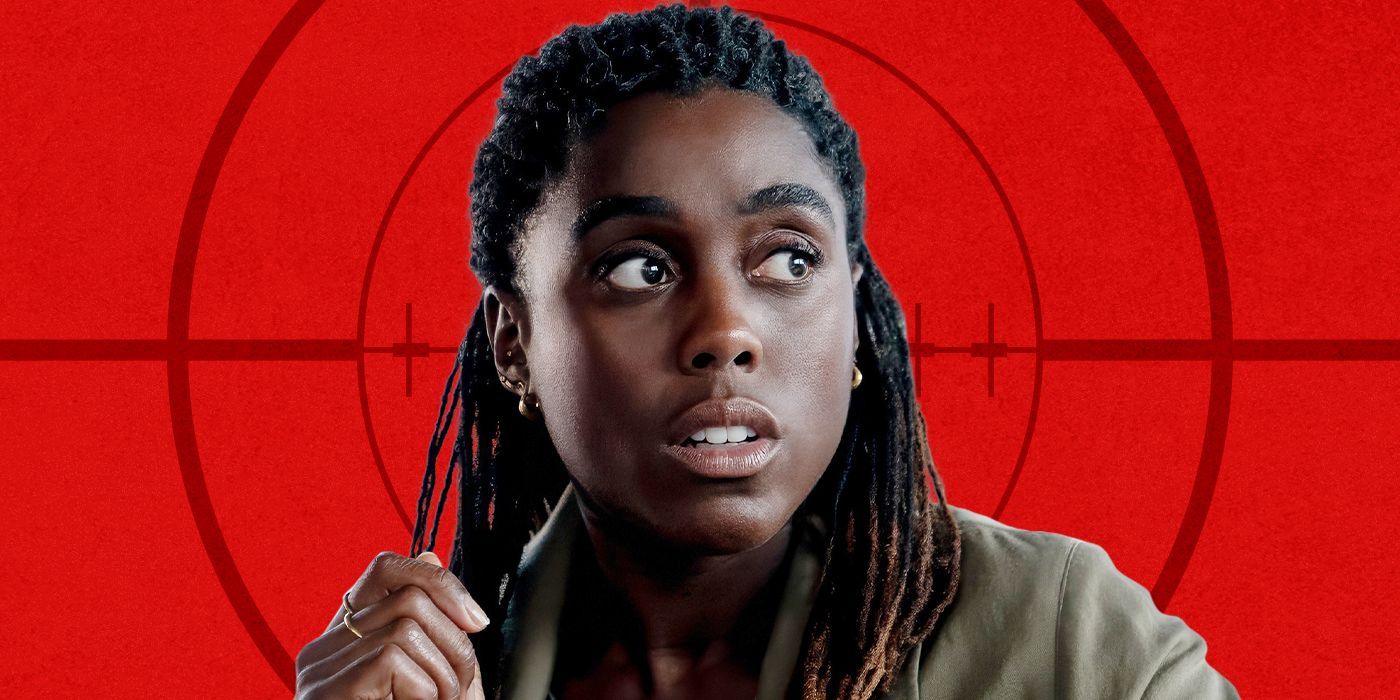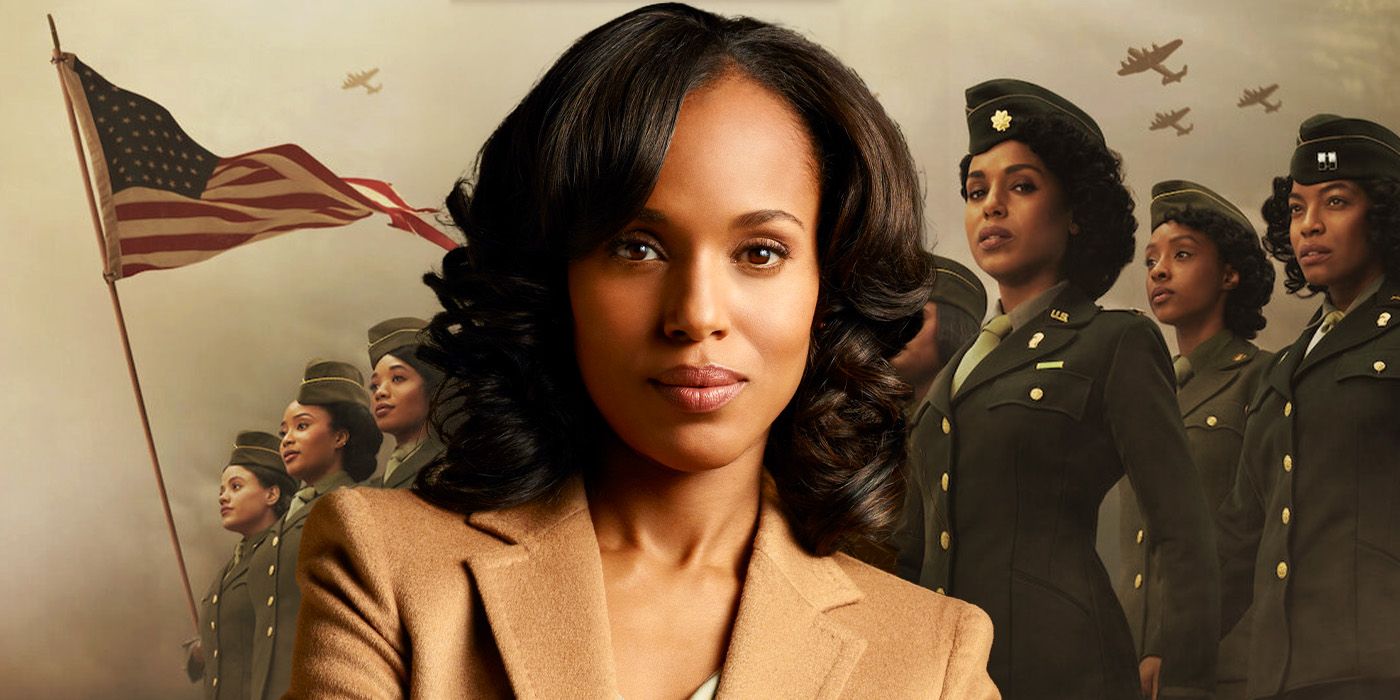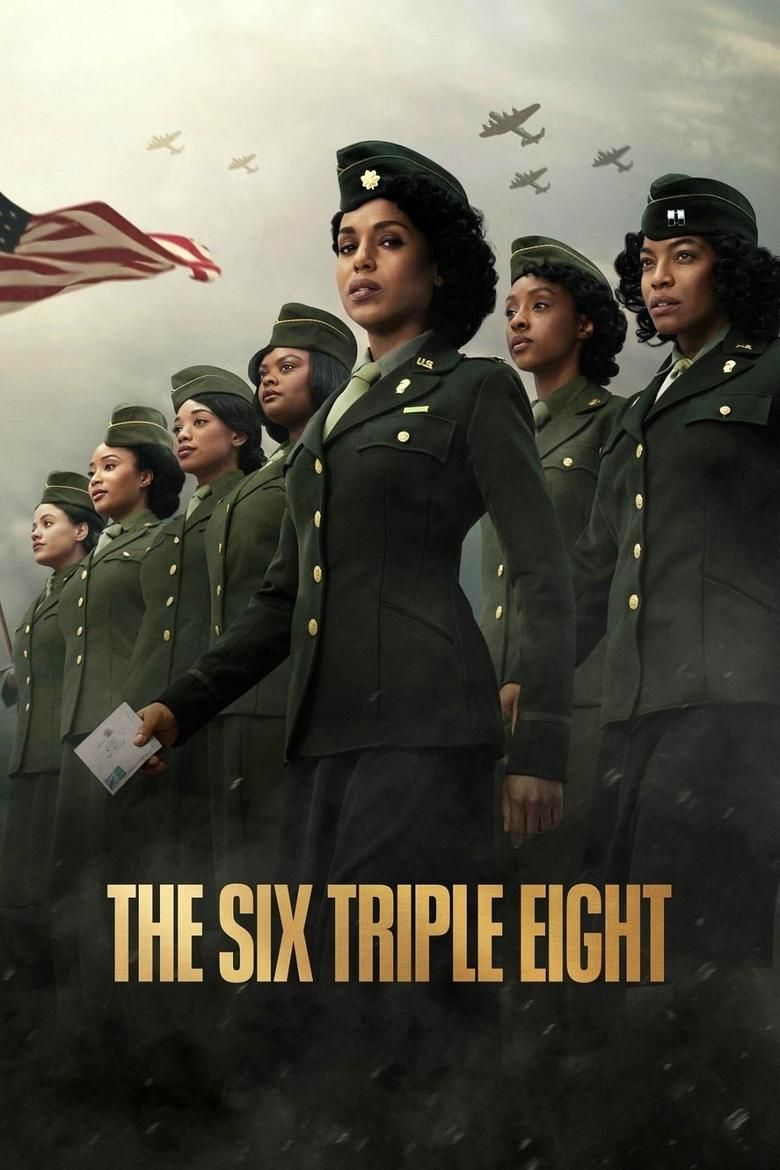There are a few films that have spotlighted women's contributions during World War II, the largest and most storied armed conflict in history. The mid-20th century had some notable movies placing women at the center of the chaos that fed their dramas, including Roberto Rossellini's landmark picture Rome, Open City, which starred Anna Magnani as Pina, a resistance revolutionary woman whose violent death was felt around the world. Edward Buzzell’s Keep Your Powder Dry, headlined by the glamorous Lana Turner in 1945, improves this representation with its three female leads, who turn up to fight for their country in the Women's Army Corps. Though it's Tyler Perry's latest picture, The Six Triple Eight, that betters Buzzell's film, by not only exploring the story of the Women's Army Corps but also gracing the big screen with a forgotten page of voluminous nonfiction World War II tales. The film features an enviable ensemble cast, including Kerry Washington, Ebony Obsidian, Oprah Winfrey, Susan Sarandon, and Sam Waterson, as well as feature debutants, such as singer-actress Shanice Shantay. Shantay's outspoken character exuberates the audience, lighting up what could have been a very somber movie.
Perry revisits the unsung heroes of World War II, honoring the 6888th Battalion, comprised of all-Black, all-female soldiers who served in the U.S. military overseas. Commanded by Major Charity Adams, the first Black woman in the Women's Army Corps, who also trained them, the soldiers were tasked with the thankless but important job of clearing a massive backlog of mail in Europe for their battlefield compatriots and their loved ones. Thankless because they lacked support, did not receive proper recognition until recently, and faced jarring racism. However, the 855 soldiers sorted the backlog of over 17 million parcels in just three months, against a seemingly impossible six-month deadline they had been given. Working 24 hours in shifts, the result of their hard work ensured smiles for American families and boosted soldiers' morale in the final days of the war.
‘The Six Triple Eight’ Paints the Duality of the 6888th Battalion’s Unsung Heroism
In The Six Triple Eight, Tyler Perry is concerned about the dual battle faced by the Black soldiers: the external challenges of a war-torn Europe and the internal struggles against systemic racism and sexism. Kerry Washington embodies Charity Adams with an admiration that leads a courageous battalion that fights for dignity in hostile environments. Washington's Major Adams is constantly under scrutiny, with cameras brought to her training grounds and recordings of weaknesses in her group finding their way onto prominent pages of newspapers with scathing headlines.

“It Spins How We Represent Women on Screen”: Lashana Lynch Embraced the Inner Rage of Her ‘The Day of the Jackal’ Character
“I need to exercise my funny bone,” says Lynch about wanting to do something comedic.
The army's commanding officer, General Halt (Norris), openly expresses his disdain for Adams and her Black battalion, boldly telling President Franklin Roosevelt (Sam Waterson) that they can't be trusted with the mail-clearing job due to a supposed lack of intelligence compared to their white counterparts, who had already failed. In Europe, she's threatened, and one of her superiors decides that her battalion was there to entertain his unit of Black soldiers. But Major Adams is undeterred. She handles her soldiers with tough love and understanding, earning their admiration in the process. Opposite her is Ebony Obsidian, portraying Lena Derriecott Bell King, the real-life 6888th Battalion soldier. Lena has the unfortunate fate of living through the harrowing effects of undelivered mail when her lover dies without her receiving his letters. The real King appears in the movie, playing herself with footage from an interview she did at 99.
Externally, the soldiers' haunting experience of being on the frontline follows them right from their boat trip, where they are unguarded by the navy, yet they are navigating the Atlantic waters that are known to shelter several German U-boats. On location, they have to deal with the overhead haunting German planes, occasionally hiding in the basement bunkers of buildings, and encountering explosives. While not keen on taking viewers to bloody combats, except for the film's set-up scene, The Six Triple Eight creates a tense war atmosphere.
'The Six Triple Eight' Boasts Some Well-Crafted Tearjerking Moments
While The Six Triple Eight could have been stronger if Tyler Perry had leaned less on dialogue to develop certain storylines—such as the romance between Obsidian’s Lena and her Jewish boyfriend, Gregg Sulkin’s Abram David, which lacks the depth to define it as either rebellious or transformative—the movie still delivers brilliant, tear-jerking moments. To top this off, Aaron Zigman's Oscar-nominated original score makes the experiences in such moments all the more visceral. Zigman's brilliance, combined with Perry's writing, shines in musically quiet moments, like when Major Charity Adams stands up for herself against bigotry and earns her a Norma Rae moment with an unexpected standing ovation.
The Six Triple Eight's screenplay, which is adapted from historian Kevin M. Hymel's article aptly titled "Fighting a Two-Front War," does not give viewers a chance to hate on the film; at worst, it's a thumbs up to Tyler Perry and his team for the worthy effort of immortalizing the underappreciated heroines the film is about.
The Six Triple Eight is available to stream on Netflix in the U.S.



